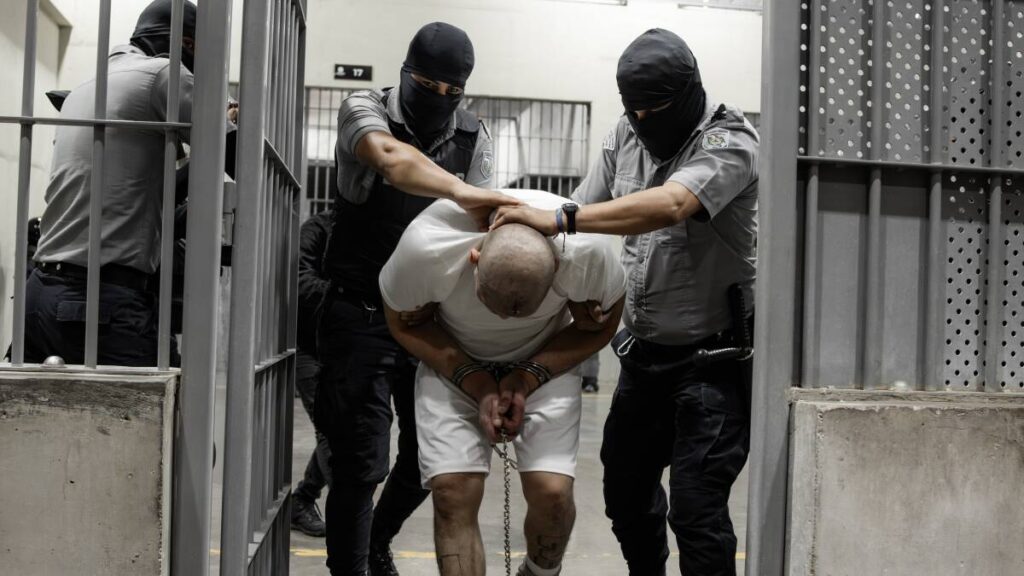San Salvador, April 20, 2025 — El Salvador’s President Nayib Bukele has made a provocative diplomatic overture to Venezuelan President Nicolás Maduro, proposing a direct prisoner exchange that could reshape the narrative around deportations and political repression in the region. In a post published Sunday on X (formerly Twitter), Bukele stated his willingness to transfer 252 Venezuelans currently incarcerated in El Salvador after being deported from the United States—if Venezuela, in return, releases an equal number of political prisoners currently held under the Maduro administration.

Bukele’s message was clear and assertive, calling on Maduro to release dozens of individuals considered political detainees by human rights organizations. Among them are prominent journalists, lawyers, and family members of Venezuelan opposition leaders, many of whom have been imprisoned or harassed for their perceived affiliations. Bukele also referenced foreign nationals detained in Venezuela, including American, German, and French citizens, indicating that the proposed exchange could extend beyond the usual bilateral parameters and touch on wider international concerns.
The Salvadoran leader confirmed that his Foreign Ministry would formally submit the proposal through diplomatic channels, though he did not specify whether the individuals sent to Venezuela would face continued detention or be granted freedom. The Venezuelan government has yet to respond to the proposal, and its Ministry of Communication declined requests for comment as of Monday morning.
This bold proposal comes amid rising scrutiny over the fate of Venezuelans deported from the United States in recent weeks. In March, the Trump administration orchestrated the deportation of at least 200 Venezuelans, many of whom were accused of ties to the Tren de Aragua gang, a powerful transnational criminal organization originating in Venezuela. Instead of being returned to their home country, these individuals were rerouted to El Salvador, where they are now being held in the country’s high-security Terrorism Confinement Center, a facility known for housing gang members and national security threats. The United States reportedly paid El Salvador $6 million to accept and detain the migrants.
However, questions surrounding the deportees’ alleged gang affiliations remain unresolved. The Venezuelan government has publicly denied any such links, insisting the deported individuals are not criminals. Lawyers and relatives of the detainees have echoed that claim, saying the deportees were wrongfully targeted and have no ties to organized crime. Human rights organizations have expressed concern that the deportation and detention practices may violate international legal norms, especially without adequate evidence or fair judicial review.
Venezuela continues to deny the existence of political prisoners within its borders, asserting that those incarcerated have been convicted of crimes under national law. Yet international human rights monitors and NGOs maintain that over 800 people are currently imprisoned in Venezuela for political reasons. These include activists, journalists, relatives of opposition figures, and dissidents whose only “crime” appears to be standing in opposition to the Maduro government.
The situation is further complicated by a recent intervention from the U.S. Supreme Court, which temporarily blocked the deportation of another group of Venezuelan migrants accused of criminal affiliations. This emergency stay followed a petition from the American Civil Liberties Union (ACLU), which argued that the use of a rarely invoked wartime law to justify the expulsions violates constitutional and international human rights protections. While the Trump administration urged the court to allow the deportations to proceed, it ultimately deferred to the Supreme Court’s decision to review the matter more closely.
Bukele’s proposed exchange adds a dramatic twist to an already contentious geopolitical issue, blending humanitarian appeals with hardline immigration policy and political maneuvering. While the success of the proposal remains uncertain, it underscores the rising influence of El Salvador in regional diplomacy and Bukele’s willingness to engage directly in issues that intersect with human rights, immigration, and transnational justice.
This diplomatic gambit, if accepted, could set a new precedent for how governments deal with politically sensitive detentions across borders. But it also raises complex questions about the ethics of linking humanitarian concerns to the fate of individuals caught in the crosshairs of migration crises and authoritarian governance.



